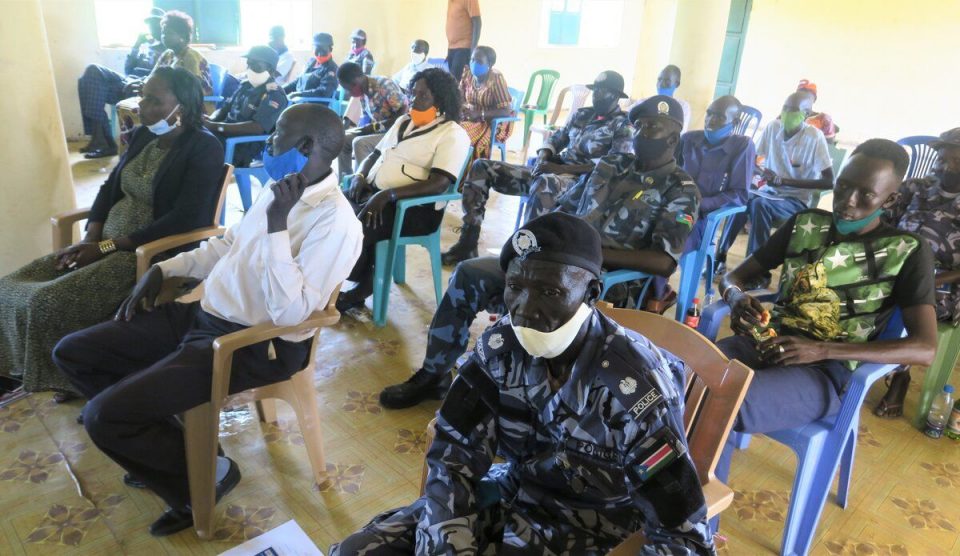United Nations Police (UNPOL) officers based in Kuajok, Warrap state, recently held a day-long community policing workshop in Tonj south county for 33 participants drawn from local policing counterparts as well as community members.
According to Bol Bol Chol, a South Sudanese police inspector in the county, such workshops go a long way in building mutual trust between law enforcement and the communities they are meant to serve.
“Sometimes people fear the police though it’s our job to work for them,” he says. “When they are apprehensive of us, they don’t report crimes and conceal information. This makes them suffer more because perpetrators of crimes don’t get apprehended immediately while the lack of accurate reports makes our work harder as well.”
In such situations, community policing can act as a bridge between citizens and law enforcement personnel by strengthening reporting mechanisms to identify individuals who could, potentially, be a threat to other people.
“The main goal of community policing is to assist the public in establishing and maintaining a safe, orderly social environment in a proactive manner,” states Vitalis Chacha, a UNPOL officer. “It builds a culture where policing becomes a collective responsibility.”
The main goal of community policing is to assist the public in establishing and maintaining a safe, orderly social environment in a proactive manner
The basis of a strong and efficient community policing system is proactively preventing crime. Rather than responding to wrongdoing only after it occurs, this method encourages strategic solutions to immediate, underlying conditions that could jeopardize public safety.
Angelina Nyibol Deng, a community member participating in the workshop agrees with Inspector Chol. “We often feel that crimes go unsolved, perpetrators go unpunished. There is a lack of faith in our police and this workshop helps us understand the challenges they face if a large majority of the population doesn’t cooperate with them,” she stated. “It is in everybody’s interest to work together, interact more often so that we can all be safe and sound.”
Another participant, Achol Majok, believes that greater synergies between the police and civil population will ensure that security issues become easier to handle and prevent.
“Whether we are law enforcement, local leaders or the public, we all have a responsibility to ensure peace and security in our own country,” she averred. “Community policing is a powerful tool and when used well can produce spectacular results in reducing criminality as well as risky behaviours. I am, therefore, very happy to participate in this discussion,” she added.
For their part, community leaders appreciated UNMISS for facilitating this workshop.
Additionally, Malok Akot Wut, paramount chief of the county, recounted the logistical challenges faced by the South Sudanese police.
“Our country is large while the number of police personnel still remains limited. They need a lot of training proper investigative techniques, administration and upholding the human rights of suspects, said Mr Wut. “More importantly, they lack vehicles and communication equipment and aren’t paid very well. They need to be empowered to ensure that they can invest their full time and energy in performing their duties. It is our duty to help them in every way we can”
UNPOL officers serving with UNMISS regularly engage with the South Sudan National Police Service (SSNPS) and key actors by delivering capacity-building activities and advocacy training to strengthen their capabilities.


